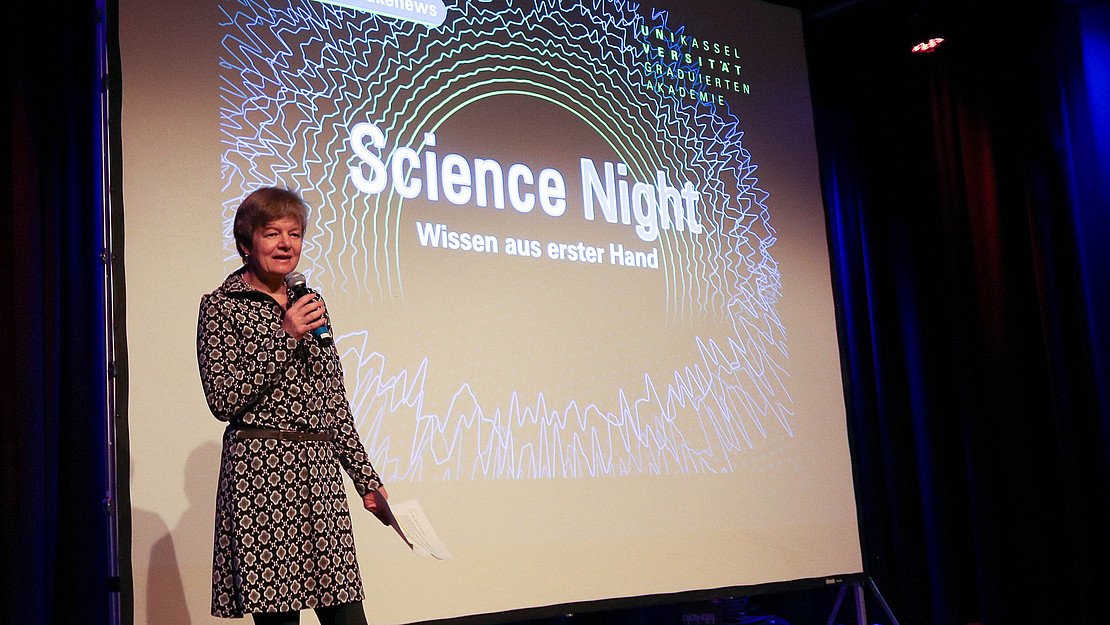This page contains automatically translated content.
First-hand knowledge: Around 150 visitors at Science Night 2019
 Image: University of Kassel.
Image: University of Kassel."The question just came up whether we can still let so many people in. I say: Yes, let everyone in!", Professor Ute Clement, Vice President of the University of Kassel, opened the evening. Science communication is increasingly an important part of everyday scientific life, she said, and the fact that an event like Science Night is so well received confirms this view. A total of 14 young scientists presented their research in short talks or videos, and the Discoverers' Trail offered the opportunity for interaction.
No matter who you ask what a physicist or scientist looks like, the holy quadruplicity of "white coat, beard, glasses, little hair" is always there, claimed moderator Sascha Vogel of Sciencebirds. The Science Night dispelled precisely this cliché and presented the audience with a colorful mix of young scientists, none of whom fit the holy quadruplicity, but all of whom conveyed enthusiasm for their research.
Ann-Catrin Cara Pristl began by showing how the advantages of brick-and-mortar retail, which enables a shopping experience with all the senses, can also be applied to online retail. She explained that perception and imagination of sensory impressions largely use the same brain areas. Oleksandr Ordynets reported on his search for mushrooms in nearby and distant forests and explained how he determines the species of mushrooms. Maria Theißen is doing her doctorate on the scope of employment of mothers with doctorates and reported that during her work she had to realize that the demand for childcare services has never been comprehensively recorded.
In the Science Quiz, the audience learned that even a diamond is not invincible, and Sven Kilian reported on the targeted conscientization of consumers when buying non-sustainable products. Roman Abel showed how sustainable learning works. His video explained that interleaved learned information stays longer in the memory and in contrast to knowledge learned in blocks a better differentiation is possible. Finally, Daniel Kottke demonstrated how easily artificial intelligence can be fooled. After the stage program, the discovery path offered the opportunity for personal exchange and participation in games, outdoor activities and other interactive formats.
The event was the conclusion of the new further qualification program "Communication School" of the Graduate Academy of the University of Kassel and is funded by the Hessian Ministry of Science and Art within the framework of the study structure program.
Contact:
Gianna Dalfuß
University of Kassel
Graduate Academy
Tel.: +49 561 804-2427
E-mail: gianna.dalfuss@uni-kassel.de